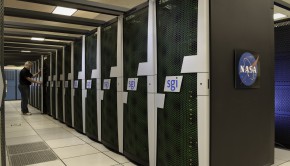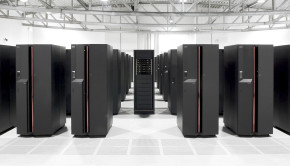The Imperminance of Knowledge
I love libraries. But I’m kind of worried about their future—and it isn’t just libraries but the nature of information and knowledge in this material world. When I was teenager, I thought of libraries as temples of revealed wisdom.
The grown-ups had learned all these things and had left this wonderful legacy of their knowledge archived in the endless shelves stretching before my little hands. Somewhere in those dusky books was everything I could ever hope to know. It was awesome.
Now I am little grown-up and, I think, less wise. Most of the knowledge, I had gained as a teenager has turned out to be faulty. For example, I thought I knew about origin of life and origin of universe through Darwin theory of evolution and Big-Bang theory respectively.
According to the Big-Bang theory, our universe sprang into existence as “singularity” around 13.7 billion years ago. What is a “singularity” and where does it come from? Well, to be honest, we don’t know for sure. Singularities are zones which defy our current understanding of physics. They are thought to exist at the core of “black holes.”
Abhas Mitra, at the Bhabha Atomic Research Centre (BARC) in Mumbai, in a controversial paper in the reputed journal, Foundations of Physics Letters, showed that black holes couldn’t exist because their formation and existence flouted Einstein’s general theory of relativity.
I realize now that knowledge itself is transitory and often of questionable validity. Today, when I visit libraries, I am suspicious. I love the ambience and even the smell, but I am wary of those books. In the fields that I know, I see books that are obsolete and even inaccurate. Unfortunately, this is true of most of them. I think that librarians should go through and remove those decayed books. Perhaps they should put a little sticker on the shelf as a place card: “The book that previously occupied this space, has been judged to have become useless, wrong, and misleading.
”
The other day, at a talk in Indian Institute of Science campus, I told the people there that “Artificial Intelligence” devices can not have consciouness. Needless to say, this opinion was unwelcome. So the real problem is, amidst all the junk, how am I to find the “good stuff?”, and who is to judge what is good anyway?
Fortunately, answer to this question (along with the answers to many other questions, I had about origin of life and universe) is given by the Supreme Lord in Bhagavad-gita:
tad viddhi pranipatena
pariprasnena sevaya
upadeksyanti te jnanam
jnaninas tattva-darsinah
Just try to learn the truth by approaching a spiritual master. Inquire from him submissively and render service unto him.
The self-realized soul can impart knowledge unto you because he has seen the truth. ( Bhagavad-gita 4.34)
All other process of learning is time consuming, inaccurate and sometimes misleading. The Supreme Lord, therefore, advises us to approach a bona fide spiritual master in the line of disciplic succession from the Lord Himself. Perfect knowledge is passed from Lord Krishna to Lord Brahma, and in this way it was passed to Vyasadeva, then Vyasadeva wrote down all the Vedic scriptures. In this way the perfect knowledge is coming to us through the disciplic succession. This is a perfect source of knowledge because Krishna is all knowing, He knows everything. Whatever Krishna says is not contaminated by the limitations of our material senses.
On the other hand, the process used by the scientists is contaminated by the limitations of their material senses. By this method one uses his own intelligence to understand things around him. This process is not perfect because it relies on information gathered through the senses and the senses themselves are imperfect.
Our eyes can only see a limited range of the spectrum, they can only focus on objects within a certain range, they can only resolve objects up to a certain distance, then everything becomes a blur. Similarity all our senses are imperfect, so any knowledge gathered by the senses must also be imperfect.














